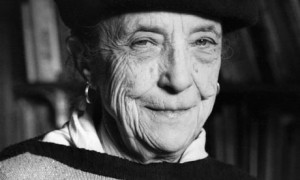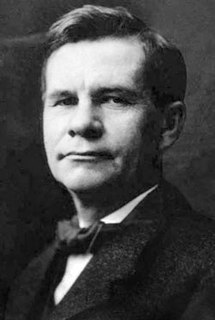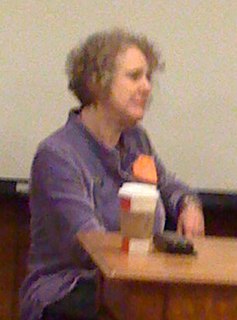A Quote by Edward Coke
That Francis Bacon retains his reputation gained, is not strange to any that knows him. The unusual words wherewith he had spangled his speech, were rather gracious for their propriety than strange for their novelty, and like to serve both for occasions to report and means to remember his argument. Certain sentences of his , somewhat obscure, and as it were presuming upon their capacities will, I fear, make some of them rather admire than commend him. In sum, all is as well as words can make it, and if it please Her Majesty to add deeds, the Bacon may be too hard for the Cook.
Quote Topics
Add
Admire
Any
Argument
Bacon
Both
Capacities
Certain
Commend
Cook
Deeds
Fear
Francis
Gained
Gracious
Had
Hard
Her
Him
His
Knows
Like
Majesty
Make
May
Means
Novelty
Obscure
Occasions
Please
Presuming
Propriety
Rather
Remember
Report
Reputation
Sentences
Serve
Some
Somewhat
Speech
Strange
Sum
Than
Them
Too
Unusual
Well
Were
Will
Words
Related Quotes
I always remember the words of George Halas, the owner of the Chicago Bears football team. When he was well into his eighties a friend found him in his office on Sunday, and asked him why, at his age, he was working on a Sunday. His response, 'It’s only work if there’s someplace else you’d rather be.'
Neither son loved the father for himself. They both were using the father for their own self-centered ends rather than loving, enjoying, and serving him for his own sake. This means that you can rebel against God and be alienated from him either by breaking his rules or by keeping all of them diligently. It 's a shocking message: Careful obedience to God's law may serve as a strategy for rebelling against God .
There were times when it appeared to Dorian Gray that the whole of history was merely the record of his own life, not as he had lived it in act and circumstand, but as his imagination had created it for him, as it had been in his brain and in his passions. He felt that he had known them all, those strange terrible figures that had passed across the stage of the world and made sin so marvellous, and evil so full of subtlety. It seemed to him that in some mysterious way their lives had been his own.
Republican candidate George Pataki said his dogs would give him the best endorsement for becoming our next president. Until they hear Chris Christie always carries bacon in his pockets. (Joke's on them, though, he's never going to give them any of that pocket bacon. It's what gets him through long meetings!)
You are angry with your neighbor, you despise him, do not like to speak peaceably and lovingly to him, because there is something harsh, abrupt, careless, unpleasant to you in his character, in his speech, in his manners-because he is more conscious of his dignity than perhaps is necessary; or because he may be somewhat proud and disrespectful; but you yourself, your neighbor's physician and teacher, are more guilty than him.
The man who is an initiate of one of the great Mystery Schools never fears to let his pupils outdistance him, because he knows that it stands him in good stead with his superiors if he is constantly sending up to them aspirants who 'make good.' He therefore never tries to hold back a promising pupil, because he has no need to fear that pupil, if allowed to penetrate into the Mysteries, would spy out the nakedness of the land; he will rather bring back a report of its exceeding richness, and thereby confirm the statements of his teacher and spur his fellow pupils to yet greater eagerness.
The Rolling Stones were an inkling towards an appreciation of the unity of music, dance and words. Any of the black R&B people who had a stage show that involved dancing, music and words did the same thing, except that I thought Jagger's words were good, his music was good and his dancing was good. I spoke to him about Blake and tried to get him to sing [William] Blake's The Grey Monk, to use his words as lyrics. He didn't do it. In the end, I did it myself.
His manners were less pure, but his character was equally amiable with that of his father. Twenty-two acknowledged concubines, and a library of sixty-two thousand volumes, attested the variety of his inclinations, and from the productions which he left behind him, it appears that the former as well as the latter were designed for use rather than ostentation.
He wanted to hear her concerns and alleviate them, he wanted to hold her and kiss her and convince her that he would find a way to make their relationship work, no matter how hard that might be. He wanted to to make her hear his words: that he couldn't imagine a lofe without her,that his feelings for her were real. But most of all, he wanted to reassure himself that she felt the same way about him.
It should be the privilege of every worker to take advantage of all the improved methods of working that relieve him from the tedium and fatigue of purely mechanical toil, for by this means he gains leisure for the thought necessary to working out his designs, and for the finer touches that the hand alone can give. So long as he remains master of his machinery it will serve him well, and his power of artistic expression will be freed rather than stifled by turning over to it work it is meant to do.
The word which is best said came nearest to not being spoken at all, for it is cousin to a deed which the speaker could have better done. Nay, almost it must have taken the place of a deed by some urgent necessity, even by some misfortune, so that the truest writer will be some captive knight, after all. And perhaps the fates had such a design, when, having stored Raleigh so richly with the substance of life and experience, they made him a fast prisoner, and compelled him to make his words his deeds, and transfer to his expression the emphasis and sincerity of his action.
Gabriel pulled her over his body to lie on the bed beside him. His kisses pressed her down into the oblivion of the mattress as her hands explored his chest, his shoulders, his face. "I want to lay my kill at your feet," he said, more growl than words, and held her tight by her hair as he marked her neck with his teeth. She writhed against him. She wanted to bite him, she wanted to rip the flesh from his back, but most terrible of all, she didn't want him to stop. Her back arched, her body shattered, she howled.
She put both her hands on his shoulders and gazed at him long, with a deep look of ecstasy and yet searchingly. She scrutinized his face to make up for the time she had not seen him. She compared, as she did at every interview with him, the image her fancy painted of him (incomparably finer than, and impossible in actual existence) with his real self.
Strange is the vigour in a brave man's soul. The strength of his spirit and his irresistible power, the greatness of his heart and the height of his condition, his mighty confidence and contempt of danger, his true security and repose in himself, his liberty to dare and do what he pleaseth, his alacrity in the midst of fears, his invincible temper, are advantages which make him master of fortune.



































